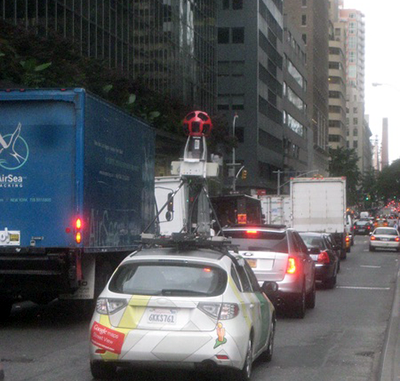
By JOHAN ABDU
The Metropolitan Transit Authority (MTA) wants to set up tolls for commuters heading to and staying in the city, in an effort to reduce vehicle congestion and carbon emissions in Manhattan’s Central Business District (CBD).
On Thursday (Sept. 23) the MTA hosted its first virtual public meeting on the topic. This meeting was for residents of the Bronx, Brooklyn, Queens and Staten Island. The public response to the plan was mixed.
Titled the Central Business District Tolling Project (CBDTP), the project will tackle the notorious accumulation of congestion in Manhattan and the environmental issues it creates. It will also discuss the MTA’s aging transit system that desperately needs repairs, as well as how increasing funding would improve service conditions.
The U.S. Federal Highway Administration (FHWA) would then have the project undergo environmental assessments to analyze what potential environmental effects, good or bad, the CBDTP would create. If approved by the FHWA, it would be the first congestion pricing program in the United States.
The project specifically targets the Central Business District, which is defined by the MTA as 60th Street and all roadways south of it, with the exception of FDR Drive, the West Side Highway, Battery Park Underpass and any surface roadway portions of the Hugh L. Carey Tunnel connecting to West Street.
The MTA has written out how the program would work on its website page dedicated to the project.
“If the Central Business District Tolling Program Environmental Assessment is approved by the FHWA, vehicles that enter or remain in the Central Business District would be tolled. The toll would be paid using an E-ZPass. If you do not have an E-ZPass, toll bills would be mailed to the address of the registered vehicle owner and they would pay the bill through (by mail.)”
In April 2019, the state enacted the MTA Reform and Traffic Mobility Act to create solutions to the increase in traffic congestion.
Under this act, the CBDTP and its tolls would have to be managed by MTA’s Triborough Bridge and Tunnel Authority (TBTA). According to the MTA’s website, the project would charge passenger vehicles only once each day for entering or staying in the district, with changing toll rates at certain times or days.
Residents living in the CBD making less than $60,000 a year would be allowed a state tax credit for paid tolls. Qualified vehicles transporting people with disabilities and authorized emergency vehicles will be exempt. Further exemptions will be up to a review by the TBTA’s Review Board.
The Zoom meeting dedicated nearly an hour and a half to hearing speakers voice their opinions on the project.
“I’m an asthmatic and my asthma is triggered by air pollution. Vehicle tailpipe emissions are a major contributor to air pollution in New York City and for that, we need congestion pricing in here,” said Hassaan Qazi, who identified himself as a Brooklyn student working in the CBD. He was one of many to voice support for congestion pricing. “London implemented congestion pricing in 2003, their air pollution has gone down, their vehicle and travel speeds have gone up and it has become a more safe, sustainable city for everyone involved,” he said.
“I am a serviceman,” said Harold Moskowitz, a Queens native, voicing his displeasure with congestion pricing. “I am also a motorcyclist, for those of you who are listening . . . Now I hear all about exemptions, the bikers want exemptions…What about me? Do I get an exemption? No, I don’t.”
There will be nine follow-up public outreach meetings in the weeks to come, aimed at specific resident groups in the CBD itself, but also in New Jersey, Long Island, Connecticut and other nearby areas.
More information on the proposed project can be found on new.mta.info/project/CBDTP.

Leave a Reply
You must be logged in to post a comment.